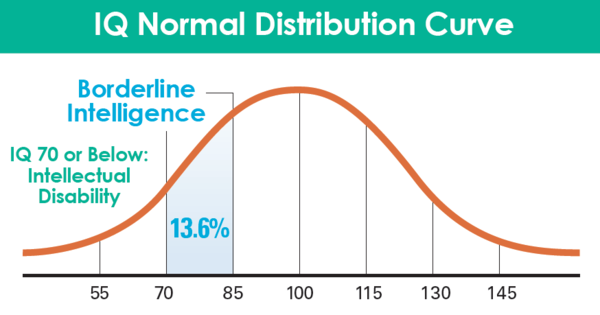On January 10th, the Gyeongsangnamdo Office of Education (GNE) and Busan Metropolitan City Office of Education (BMCOE) announced the expansion of support for basic academic achievement for students with borderline intellectual functioning (BIF). On the same day, the National Assembly announced a representative proposal for the enactment of the Slow Learner Education Support Act. Therefore, the Sungkyun Times (SKT) now delves into BIF, the current situation of those driven into a blind spot, and corresponding solutions.
Somewhere between Disabled and Non-Disabled
- The Slow Learner
BIF refers to a condition in which an individual’s intellectual quotient (IQ) is recorded as 70 or above to 84 or below on the Wechsler Intelligence Scale. According to the fifth edition of the Diagnostic and Statistical Manual of Mental Disorders (DSM-5), it was named BIF because these individuals are lying on the borderline of a disability. An IQ above 84 is categorized as average, and an IQ below 70 is classified as intellectual disability (ID). Thus, those with BIF are not classified as people with ID, but their cognitive abilities are lower than average. Typical characteristics of BIF are a lack of learning ability, absence of problem-solving ability, and difficulties in building relationships. However, it is hard to generalize due to its various phenotypes depending on the composition of cognitive structure. According to the normal distribution of the domestic IQ level in 2023, about 13.6% of the population, or one in seven individuals, is classified as having BIF. Psychiatrist Oh Dong-hoon explained on his YouTube channel, “The causes of BIF are extremely complex, and the possibility of improvement is narrowed since it is hard to be detected prematurely when early treatment is not conducted.”

- Staying on the Borderline
Above all, people with BIF are far from being able to claim universal welfare provided for those with ID because their condition is not classified as one, according to the DSM-5. Not until October 2020 did the Seoul Metropolitan Government (SMG) enact the ordinance to support lifelong education for people with BIF. It was only then that each local government began to conduct policy development. Referring to the previous ordinance, SMG established the BIF Center for Continuing Education in June 2022 and proposed the Comprehensive Educational Plan for BIF from 2023 to 2025 in January 2023. On January 10th, GNE and BMCOE announced that they would reinforce parent counseling and enhance initial literacy and numeracy for students with BIF. On January 14th, Ahn Min-seok, a member of the Democratic Party of Korea, announced a representative proposal for the Education Support Act for Slow Learners. Unlike previous bills that have been discussed in the National Assembly targeting adults with BIF, the current bill targets public education subjects. Although it is encouraging that attention towards BIF has increased, several issues are still to be discussed.
Borderline Intellectual Functioning in a Blind Spot
- A Line Bounded by 69 and 71
Fundamentally, individuals with BIF are in a blind spot of social welfare because the standard of the current law depends solely on numerical figures. Although the gap between IQ 69 and 71 is minor, figure 70 determines whether one can be protected or not. The first problem derived from this criterion is that those with BIF cannot receive enough therapeutic support. There are supportive measures, such as a reduction of health insurance premiums for individuals with ID, but not for those with BIF. Although early detection and treatment are crucial for cognitive impairment, concerns exist regarding missing the “golden period” for treatment. The next problem is that there are no laws to protect people with BIF, even if they are likely to be the target of crime, especially fraud and sex crimes. In 2020, a 12-year-old girl with BIF was sexually assaulted by three high school students. The offenders were acquitted under insufficient evidence that the victim was captured smiling on CCTV and texted the offenders after the incident. In an interview with the SKT, one lawyer commented, “If she had an intellectual disability, she would have received legal protection under the Special Cases Concerning the Punishment of Sexual Crimes Act that would have sentenced offenders to life imprisonment or nothing less than seven years.”
- Stuck between Boundaries
Individuals with BIF need specialized education to reach standard levels because their learning ability falls short. Despite this condition, there is insufficient governmental support for education expenses and facilities for those with BIF. Consequently, it can lead to a financial burden for families needing private education to reach average levels. Nevertheless, if they encounter difficulties in keeping pace with classes, there are possibilities that they will face challenges in adapting to school. Since school is the place to develop social skills where having various experiences is essential, those possibilities may bring difficulties in building relationships. Moreover, the welfare system for youth with BIF who prepare for self-reliance is not firmly established because the exact number of individuals has not been identified as they are not registered as disabled. In addition, case managers tend to be reluctant to manage young people with BIF since they often do not produce promising career and employment results. Therefore, such an unkind system may prevent these individuals from becoming economically, socially, and personally independent.

Boundaries of Intelligence ≠ Boundaries of Life
- From a Straight to a Curved Line
Radically, the current criteria for disability only based on IQ should be improved. To make the requirements more concrete, numerous factors, such as emotional intelligence quotient (EQ), sociality, and mental stability, should be added to test items. Furthermore, the condition should be subdivided into cases where intelligence is low but possible for social life, vice versa, and both low. Customized treatments for these three phenotypes should be extended based on the new standard. In an interview with the SKT, psychiatrist Jun Jong-ho stated, “As those with BIF are on the borderline, if neglected, they will be more vulnerable to ID. This proves the necessity of an early treatment that can improve the individual’s quality of life.” In childhood, the diagnosis distinguishing cognitive functions must be mandatory, and medical services should be provided if issues are found. Public Health England recognizes BIF as a learning disability, and those with BIF are linked to support teams and receive healthcare and education services throughout their lives. In the case of crime prevention, carrying out primary treatment based on new criteria will significantly alleviate the fundamental problem of victims not recognizing that they are in a vulnerable position and being exposed to similar risks. However, legal systems should exist to protect them after the incident because not all crimes can be prevented, even with the new criteria.

- Beyond the Line
From an academic perspective, dedicating effort to public education can be the ideal solution. In Germany, public education that would typically take two to three years is modified into a curriculum that takes four to five years with repeated training specialized for students with BIF focusing on practical training rather than studying theory. Moreover, BIF students must have the opportunity to develop their social skills by interacting with their peers. In the case of Northern Europe, all students, including the ones with BIF, are placed in the same class with an additional special instructor. To address the challenges of youth with presumed BIF aiming for self-reliance, starting with conducting free assessments to determine their place on the scale is essential. Upon confirming the number, an adequate number of case managers should be deployed to support the needs of those with BIF. According to the 2023 study by the Korea Research Institute for Vocational Competency, 65.7% of those with BIF wanted self-reliance preparation programs and service support organizations. Lastly, job maintenance is just as crucial as employment; support centers need to distribute training manuals that explain ways to deal with workplace conflicts and, therefore, facilitate individuals’ integration into society.
Individuals with BIF are stuck between boundaries. Not only are they unable to enjoy the everyday life of normality, but they can also fall outside of the protection system for disabled individuals. One in seven individuals around Kingos has BIF. These individuals, like every other, could live as valued and respected members of society when the borderlines are blurred.
